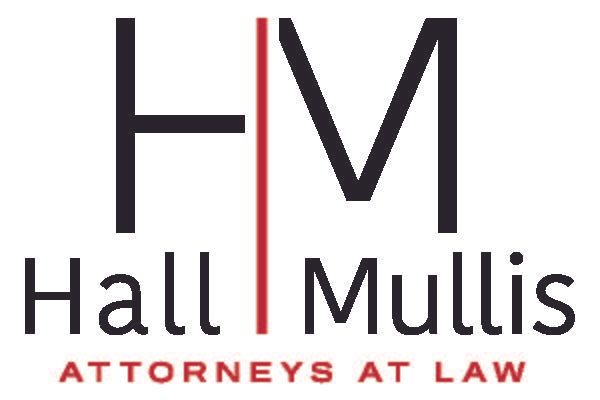FAQ's

- What Is Bankruptcy?
The United States bankruptcy Code provides debt relief for those who, in good faith, need relief. The Code provides immediate relief from debt collections, lawsuits, IRS levies, home and business foreclosures, repossessions and garnishments. Exemptions are available to protect some or all of your property. The Code is divided into chapters with each chapter setting forth the rules of a particular type of bankruptcy. Under a Chapter 7 bankruptcy, you can wipe out debts for a fresh start. Chapter 13 Bankruptcy allows you to consolidate your debts into one low monthly payment. Chapter 11 Bankruptcy allows businesses to reorganize their debts. Chapter 12 Bankruptcy allows farmers and fisherman to consolidate their debts without losing their farms and/or equipment.
- Is There A Way To Solve My Problems Other Than Bankruptcy?
- If you have several small debts, you may be able to consolidate them into one debt with a lower payment by obtaining a loan from a bank or finance company. However, be aware of the interest rate that will be charged to you for this loan. I would not recommend getting a second mortgage on your home without first speaking with a lawyer since you may actually be placing you home at risk. Also, if your credit is not good, you may not be able to find anyone willing to make such a loan to you.
- If your problems are predominantly tax related, you may be able to work out an agreement with the taxing authority to accept an amount less than what is owed. One such available remedy is to enter into an “offer in compromise” with the taxing authority. You would probably be better served to allow a lawyer or CPA to assist you with this type of remedy.
- If your total debt is small and is mostly credit cards and medical bills, you may contact a consumer credit counselor to help you negotiate a payout plan with your creditors. Beware of the many fraudulently or poorly organized consolidation companies advertising. We recommend that you find a local company out of your telephone book.
- You may be able to settle for a portion of your debt. Keep in mind, that the IRS will treat any forgiveness of debt outside of a bankruptcy as taxable income.
- If I Am A Business Wishing To Reorganize Or A Farmer Or Fisherman Wishing To Consolidate, What Should I Do?
Chapter 11 reorganization and Chapter 12 consolidations are very complex. If you fall into this category, you can get the general idea of how bankruptcy works by reading on. However, you will need to schedule a free consultation so that these chapters can be explained as they pertain to your problems. It may be possible to resolve your problems in a Chapter 7 or Chapter 13 case.
- What Is The Difference Between A Chapter 7 Bankruptcy And A Chapter 13 Bankruptcy?
The most notable differences between Chapter 7 and Chapter 13 are as follows:
- Chapter 13 is often referred to as a consolidation bankruptcy and typically requires monthly payments to the Chapter 13 Trustee for no less than 3 years and no more than 5 years to pay for houses, cars, furniture and maybe a portion of your unsecured debts. After the completion of all payments under the Chapter 13 plan, most of your unsecured debts will be discharged (forgiven), and all or most of your assets will be paid off. You are not allowed to buy anything on credit without the Trustee’s permission while you are under a Chapter 13 plan.
- Chapter 7 is often referred to as a liquidation bankruptcy or fresh start bankruptcy and does not require monthly payments to the Trustee. Under a Chapter 7, you may keep certain debts that you choose provided it is in your best interest to do so and provided that you are current on your payment of those debts. Usually, debtors will keep the debts on their automobile or house, unless they no longer want them. Most other debts will be discharged within about 3 to 5 months after filing the bankruptcy petition. In October 2005, Congress enacted bankruptcy reform that requires a testing of your income to determine if you can file a Chapter 7 bankruptcy. This is called the means test. It compares your income to the mean income in your state to determine if you qualify to file a Chapter 7 bankruptcy.
- How Do I Decide Which Chapter Is Right In My Case?
Congress has made it clear that the filing of the Chapter 13 is preferred over a Chapter 7. However, Chapter 7 is still available to many.
If you have mostly unsecured debts (like credit cards, hospital and medical bills, or revolving accounts), are current on your payments for secured debts that you want to keep (like house loans, automobile loans, furniture loans, and personal loan companies), and do not have extra income after you pay your monthly expenses, a Chapter 7 usually is a good method to solve your problems. Otherwise, a Chapter 13 is a very good solution for most other situations such as keeping vehicles, real estate and furniture.
There are numerous factors that you must consider in deciding which chapter is best for your case. One of the many services that I will provide to you is to review the financial information that you provide to me and help you decide which chapter would best resolve your problems.
- Will The Filing Of A Bankruptcy Case Stop My Creditors From Harassing Me?
Yes, except in certain repeat filer cases. In first filing cases, immediately upon the filing of a bankruptcy case, an “automatic stay” goes into effect that prohibits creditors from trying to collect from you either directly or indirectly. The word “stay” means that creditors are prohibited from collecting from you. They cannot proceed forward with any collection attempts, whether by telephone, mail, lawsuit, foreclosure, repossession or garnishment. The word “automatic” means that the stay goes into effect automatically upon the filing of your bankruptcy petition.
- Can I Keep My Home, Automobiles, Furniture And Household Goods?
Yes, in many cases, you can protect and pay for your home, automobiles and furniture through a Chapter 13 Plan even if you are behind. Also, the Bankruptcy Code and the Official Code of Georgia allow certain exemptions to protect your equity in household goods, retirement accounts, jewelry, clothing, home and automobiles.
- How Will Filing A Bankruptcy Affect My Credit?
The fact that you have filed a bankruptcy will be reported to the credit bureaus and will remain on your credit report for up to 10 years. If you already have bad credit, the completion of your bankruptcy may actually improve your credit report. The bankruptcy will bring closure to your past due debts. If you have good credit, the filing of a bankruptcy will definitely impair your credit report. Your credit record will be affected equally regardless of whether you file a Chapter 13 or Chapter 7, so this should not be used in deciding which Chapter to file. If you are under a Chapter 13, you cannot buy anything on credit while you are paying the Trustee. Under a Chapter 7, you can buy on credit if anyone will loan to you. If a creditor will loan to you, the creditor usually will charge a higher interest rate. Beware of these interest rates. These can quickly get you back into financial problems.
- Will Filing A Bankruptcy Affect My Employment?
No. Employers are prohibited from terminating or punishing an employee for filing a bankruptcy. However, Georgia is an “at will” employment state, which means that you can be fired with or without cause. In other words, you can be part of an overall layoff or you can be terminated for cause, but you cannot be discriminated against because you filed for bankruptcy.
- Are There Any Debts That I Cannot Discharge?
Yes. You cannot discharge several types of debts including alimony, child support, student loans (except for hardship), certain taxes, and judgments against you based upon fraud.
- Do Both My Spouse And I Have To File Bankruptcy?
No. If you need to file for bankruptcy and your spouse does not, only you have to file. If both of you need to file bankruptcy, you can both file on the same petition. If one spouse files for bankruptcy and then the other spouse decides to file, the other spouse will not be able to join the already filed bankruptcy. The other spouse will have to file their own separate bankruptcy petition.
- What Happens To My Co-Debtors (Co-Signers) When I File For Bankruptcy?
A co-debtor is anyone who signed onto a debt with you or with whom you signed onto a debt with them. If you file a Chapter 7 and keep paying the debt, the co-debtor is not affected. If you stop paying the debt, the creditor will then attempt to collect the debt from your co-debtor. If you file a Chapter 13 and agree to pay the entire debt in your plan, the creditor cannot attempt to collect from the co-debtor. If you propose to pay less than what is owed or you choose to discharge the debt, the creditor can attempt to collect from the co-debtor, but will have to get permission from the court to do so.
- What Do I Have To Do To File A Bankruptcy?
Just fill out the Questionnaire and set an appointment to meet with us. Bring the information packet to the appointment. The most important information for you to provide your attorney with at your first appointment is a list of all of your creditors (whether you want to keep them or not), their addresses, account numbers and account balances. If you have your latest statement or coupon books bring those. Also, bring all written statements and letters that you have received from your creditors within the last 90 days. They usually have all the information we need. Also, bring to your appointment your tax returns for the last four years if you have them, and your last six months of pay stubs if you were employed during that time (if you do not have these, you may be able to obtain a print out of your stubs from your employer).
- What Services Can I Expect To Receive If I Hire Hall and Mullis P.C.?
- Review of your financial information.
- Help in deciding whether filing bankruptcy is in your best interest;
- Help in deciding which chapter of bankruptcy is best for you;
- Help in getting rid of certain liens against you or your property;
- Preparation and filing of all legal documents required to be filed with the Court;
- Attendance at all scheduled meetings and hearings in your case;
- Handling of creditor calls, work out problems with the creditors, prepare and negotiate reaffirmation agreements, and stop violations of the automatic stay;
- Answers to all of your questions and provide assistance in resolving your financial problems as necessary.
- What Will Be My Responsibilities If I File For Bankruptcy Protection?
- A commitment to resolving financial problems;
- Provide financial information completely and accurately to the best of your knowledge;
- Answer all requests of attorney promptly and keep all appointments with the attorney;
- Attend all scheduled meetings and hearings unless expressly instructed otherwise by the attorney;
- Notify the attorney immediately of all changes in your information including address and telephone changes.
- Pay all monthly payments when and as due.
- Pay all filing fees and attorney’s fees when they are due.
- Keep accurate financial records during your bankruptcy case, which is required by law.
